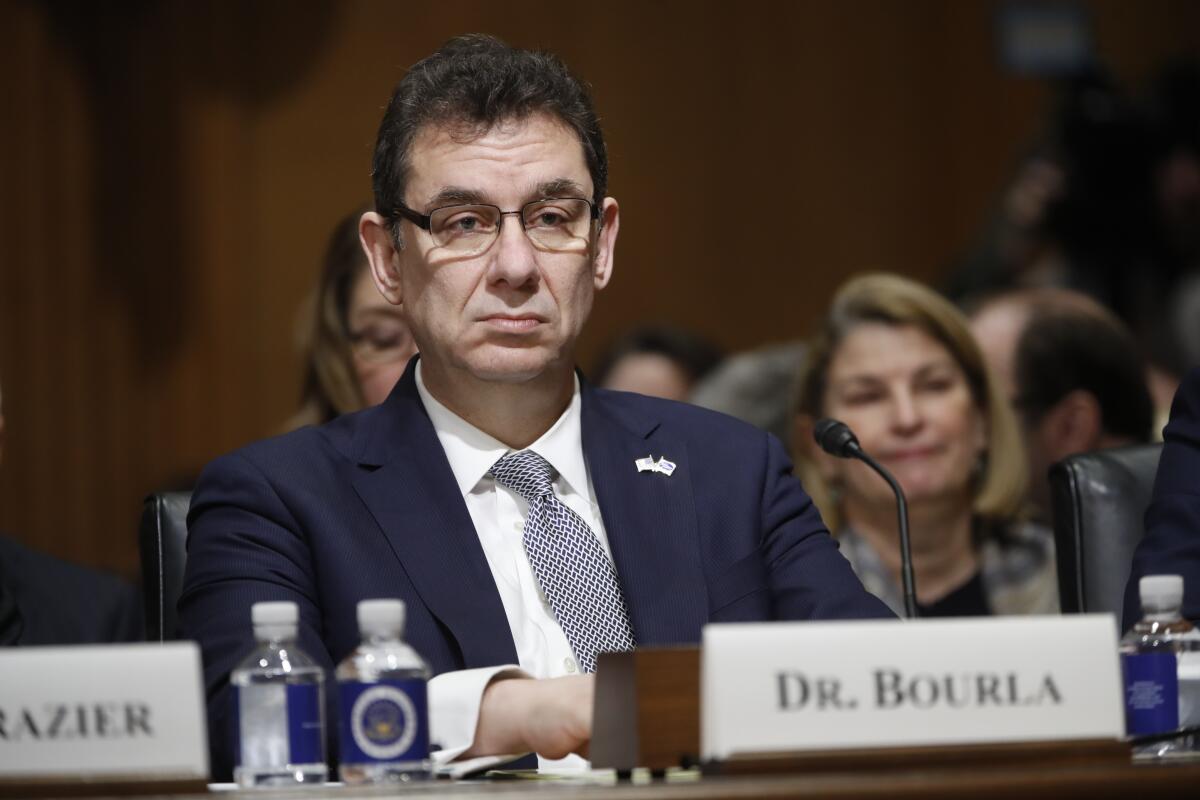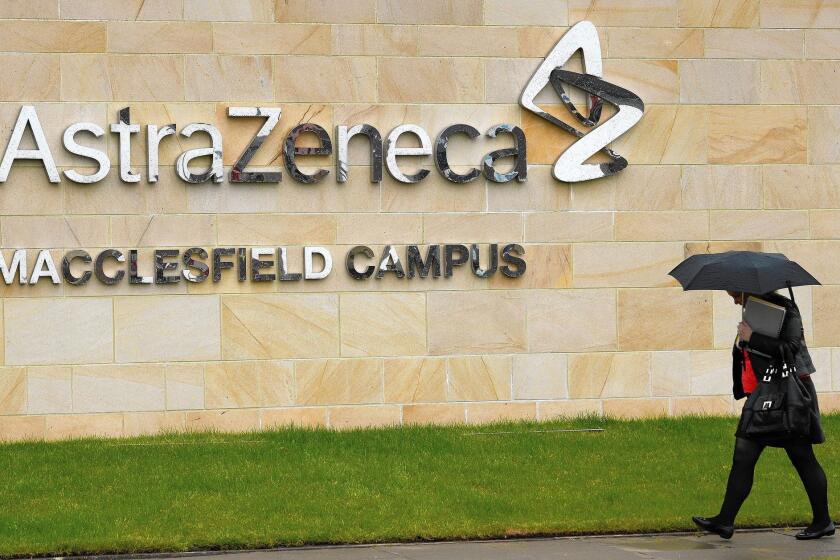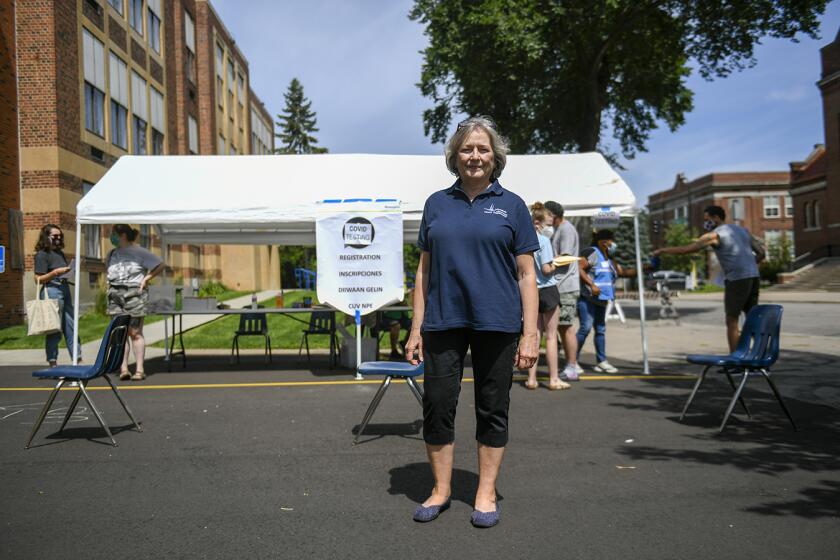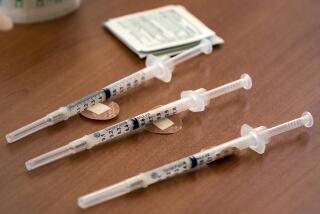Pfizer CEO, despite Trump’s claims, assures employees he won’t rush COVID-19 vaccine

- Share via
The head of Pfizer, one of the drugmakers racing to develop a coronavirus vaccine, told employees he was disappointed that its work was politicized during this week’s presidential debate and tried to reassure U.S. staff that the company won’t bend to pressure to move more quickly.
Albert Bourla, Pfizer’s chief executive, told the employees Thursday that the company is “moving at the speed of science,” rather than under any political timing, according to a staff letter obtained by The Associated Press.
“The only pressure we feel — and it weighs heavy — are the billions of people, millions of businesses and hundreds of government officials that are depending on us,” Bourla wrote.
Despite top U.S. federal health officials repeatedly stating that a vaccine is unlikely to be available widely until 2021, President Trump has insisted that a vaccine will be ready before election day.
A pause in a major vaccine trial shows why Trump can’t rush science.
During Tuesday’s debate with former Vice President Joe Biden, Trump said he had talked with the companies whose experimental vaccines are furthest along in testing.
“I’ve spoken to Pfizer, I’ve spoken to all of the people that you have to speak to, Moderna, Johnson & Johnson, and others. They can go faster than that by a lot,” Trump claimed. “It’s become very political.”
Pfizer has said that it expects to have data from its ongoing late-stage test by October that could show whether the vaccine is safe and effective. In his letter to employees, Bourla wrote that the company hopes to have “a hundred million doses delivered by the end of the year.”
Those doses could not be distributed until the Food and Drug Administration reviews Pfizer’s data and decides whether to issue what’s called an emergency use authorization. That would allow distribution of the vaccine on a limited basis, with initial shots expected to go to medical and other frontline workers, nursing homes and people most at risk of catching or becoming seriously ill from the virus.
Underfunded health departments say they lack the staff, money and tools to distribute, administer and track doses of COVID-19 vaccine for millions of people.
Moderna’s chief executive, Stéphane Bancel, told the U.K.’s Financial Times on Wednesday that Moderna would not be ready to seek emergency use authorization from the FDA for its vaccine candidate before Nov. 25 at the earliest.
Johnson & Johnson just started the late-stage and final patient study of its vaccine last week.
And AstraZeneca, which has a candidate in late-stage trials around the world, has placed its U.S. study on hold while the FDA reviews a possible safety problem.
Bourla and top executives of eight other companies developing COVID-19 vaccines and treatments pledged in early September not to seek even emergency use authorization, let alone a full approval of their products, until they were proven safe and effective.








